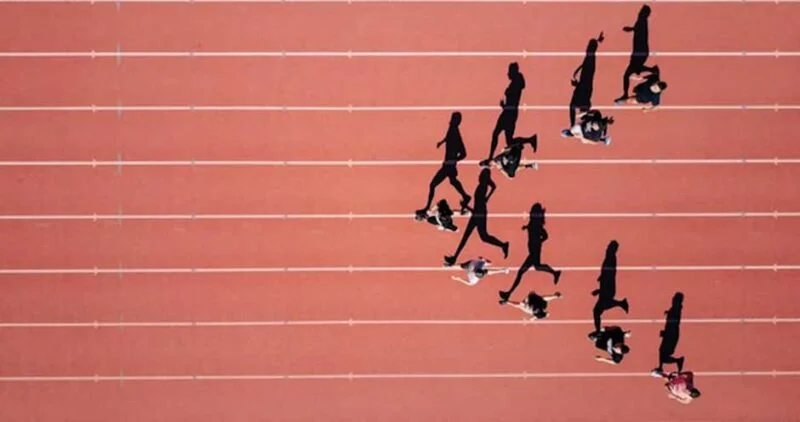
To guarantee that teams perform to their highest potential, teams must carefully plan and strategically prepare for school sports tournaments. Whether it’s on the basketball court, soccer pitch, or track & field, the journey toward victory starts long before the first whistle. Every facet, from physical training to mental preparedness, is critical to on-field performance. This comprehensive guide outlines essential steps and considerations to help you and your team excel in upcoming tournaments, fostering a competitive spirit and sportsmanship that define school athletics.
Creating a Training Schedule
A disciplined training schedule is essential to be ready for school sports tournaments. Start by reviewing the tournament schedule and choosing crucial days to work backwards from. Combine strength training, cardiovascular fitness, and sport-specific skill exercises. For instance, if you’re getting ready for a soccer competition, work on your endurance with agility exercises and interval training. Make careful to plan rest days to avoid overtraining and encourage the healing of muscles. Maintaining consistency is essential because it increases endurance and enhances performance under duress. Teams can enhance their physical resilience, strengthen their cohesiveness, and improve their abilities by following a set training schedule.
Nutritional Planning and Hydration Strategies
Proper nutrition and hydration are vital components of athletic performance and tournament readiness. Create a diet plan that prioritizes well-balanced meals high in healthy fats for long-term endurance, lean proteins for muscle repair, and carbohydrates for energy. Athletes should be encouraged to eat quickly-digested meals that will provide them with sustained energy before competition. Maintaining optimal performance and preventing dehydration during training sessions and competitions requires athletes to consume water regularly. Electrolyte-rich beverages can help replenish lost minerals during vigorous exercise and sporting events.
Prioritizing nutrition and hydration allows teams to increase stamina, recover quicker between matches, and maintain peak performance throughout the tournament.
Strategic Analysis and Game Planning
Analyzing the advantages and disadvantages of your opponents while maximizing the strengths of your team is essential to effective game strategy. To improve tactics and formations, analyze scouting reports, watch game footage, and hold strategic meetings. To promote a shared knowledge of responsibilities and game tactics, team members should be encouraged to communicate freely with one another. Create backup plans for different eventualities, such as modifying your strategy in the event that the weather or the game dynamics change. Teams that plan well are better able to foresee obstacles, seize opportunities, and adjust quickly during games, all of which improve their chances of winning in competitive settings.
Mental Preparation and Sports Psychology
Mental fortitude is as critical as physical prowess in sports tournaments. Use mental preparation strategies to increase confidence and attention, such as visualization exercises and encouraging self-talk. Teach athletes how to deal with performance anxiety and remain calm under pressure. Emphasize how crucial it is to have a resilient mentality and create reasonable objectives in order to succeed during the competition. Sports psychology methods, such as stress reduction and mindfulness practices, can support athletes in maintaining mental flexibility and delivering their best work when it counts most. Teams can improve their performance on game day and develop a winning attitude by placing equal emphasis on mental and physical preparation.
Team Bonding and Unity
Creating a cohesive and supportive team atmosphere requires developing team cohesiveness and bonding. Plan team-building activities to improve relationships and trust amongst coworkers, such as bonding exercises or group trips. Promote open communication and mutual respect on and off the field. Creating a cohesive team environment fosters a common dedication to team objectives and improves cooperation in games. To improve spirits and strengthen teamwork, recognize and celebrate both individual and group accomplishments. In addition to enhancing on-field synchronization, a cohesive team dynamic fosters a network of support that inspires players to give their all for one another.
Recognition and Motivation
Recognition and motivation are critical in maintaining morale and instilling a competitive spirit in athletes during school sports tournaments. Celebrate individual and team achievements, whether through verbal praise, awards ceremonies, or tangible rewards such as custom track medals. Athletes gain self-assurance and morale when they get praise for their efforts, which in turn motivates them to keep improving. Establish goals, encourage, and foster a positive team environment to inspire players to pursue personal bests and support the team’s success. Acknowledging contributions and successes strengthens team bonds and motivates players to reach their highest potential.
Conclusion
Preparation for school sports tournaments demands a multifaceted approach encompassing physical conditioning, strategic planning, mental resilience, team unity, and recognition of achievements. Teams can reach their maximum potential and perform at their best by implementing a thorough training schedule, placing an emphasis on nutrition and hydration strategies, improving game tactics through strategic analysis, placing a high value on mental preparation and sports psychology, encouraging camaraderie and teamwork, and rewarding accomplishments. This holistic approach not only enhances athletic performance but also promotes sportsmanship, camaraderie, and personal growth among student-athletes.

